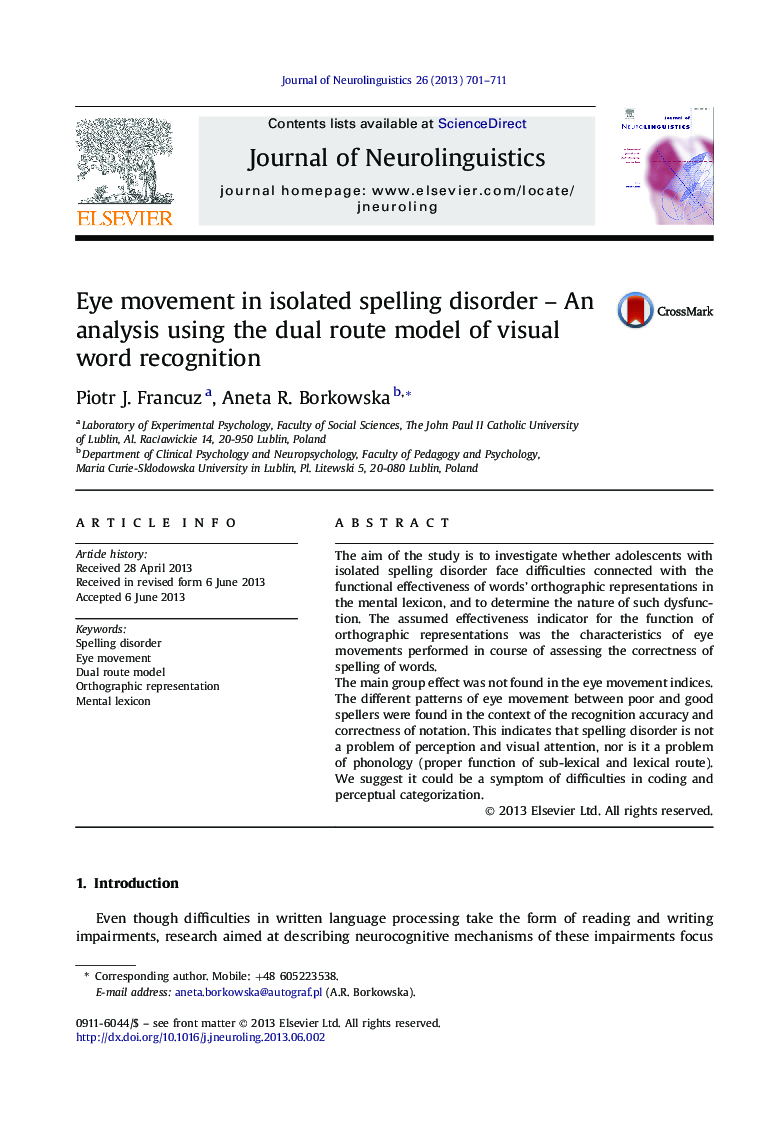| Article ID | Journal | Published Year | Pages | File Type |
|---|---|---|---|---|
| 911813 | Journal of Neurolinguistics | 2013 | 11 Pages |
•We examined eye movements of poor spellers in a words' correctness recognition task.•Poor spellers showed different eye movement patters in the context of recognition accuracy.•Poor spellers showed different eye movement patters in the context of notation correctness.•Spelling disorder may be a symptom of difficulties in coding and perceptual categorization.
The aim of the study is to investigate whether adolescents with isolated spelling disorder face difficulties connected with the functional effectiveness of words' orthographic representations in the mental lexicon, and to determine the nature of such dysfunction. The assumed effectiveness indicator for the function of orthographic representations was the characteristics of eye movements performed in course of assessing the correctness of spelling of words.The main group effect was not found in the eye movement indices. The different patterns of eye movement between poor and good spellers were found in the context of the recognition accuracy and correctness of notation. This indicates that spelling disorder is not a problem of perception and visual attention, nor is it a problem of phonology (proper function of sub-lexical and lexical route). We suggest it could be a symptom of difficulties in coding and perceptual categorization.
